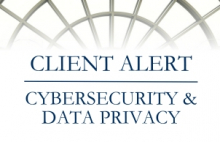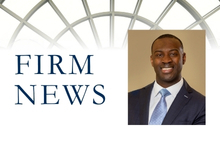Supreme Court Clarifies When Government Officials’ Social Media Posts are “State Action”
March 18, 2024State and local governments, and many government officials, increasingly rely on social media to communicate quickly and effectively with their constituents. Many government officials also use personal social media accounts to connect with friends and family and to speak in their private capacities on a wide range of issues. But when can a government official’s activity on his or her personal social media page be attributed to his or her public employer? With the rise of social media and the expediency it allows for communication of personal and public matters, often commingled on one social media site, the question has confounded the courts, public officials, and lawyers for the last decade.
In Lindke v. Freed, a unanimous opinion issued on March 15, 2024, the United States Supreme Court provided critical guidance to clarify the line between private and government activities conducted on social media. The Court held that posting, deleting comments, and blocking viewers or commenters—even on a government official’s personal social media page—can be considered government action when the official (1) has authority to speak on behalf of the government entity about the subject of the post, and (2) purports to exercise that authority through his or her social media activities. This new test supersedes the approaches previously adopted by the U.S. Courts of Appeals for the Second, Third, and Ninth Circuits.
Lindke involved the City Manager of Port Huron, Michigan, who had long maintained a personal Facebook page that predated his employment with the city. The City Manager used his Facebook page both for personal social media activities, such as posting family photographs, and to make public announcements about the city’s events and policies. When the COVID-19 pandemic began, the City Manager used his Facebook page to inform city residents about pandemic safety measures the city had adopted. One Port Huron resident made several comments criticizing the city’s COVID-19 policies, and the City Manager eventually deleted those comments and “blocked” the resident from posting further comments on his page.
The resident then sued the City Manager under 42 U.S.C. § 1983, which allows state officials to be held liable for official actions that violate a person’s rights under the U.S. Constitution or other federal law. The resident claimed the City Manager violated the First Amendment by deleting the resident’s comments based on the views he expressed and by blocking him from making further comments on the City Manager’s Facebook page.
The key question under section 1983 was whether the City Manager’s deletions and blocking were “state action”—acts that could be ascribed to his capacity as a City Manager rather than to his individual status as a father, husband, and citizen. To answer this question, the Supreme Court announced a two-part test.
First, a government official’s social media posts can only be “state actions” if the official has authority (under written law or “longstanding custom”) to make official statements about the subject of the post. A school board president may have customary authority to speak for the school district when announcing a districtwide snow day, but a municipal sanitation worker likely cannot speak for the city when discussing a new ordinance about parking fees that the sanitation department does not enforce or apply.
Second, state action exists only where an official purports to exercise his or her authority when speaking or posting on social media. Department or organizational accounts, accounts run jointly by officials and other city staff, and posts on an official’s private page that announce new policies or livestream official government meetings are all likely to be state action. Because this third category is most likely to arise where public officials start to use their private pages to communicate government business, the Supreme Court admonished that the risk of liability increases for an official who does not “keep personal posts in a clearly designated personal account.” And while an official can reduce the appearance of speaking on behalf of the government by posting a disclaimer that a page or post represents only private opinions, the Supreme Court warned that a disclaimer cannot categorically shield a clearly official statement from qualifying as state action. So, while disclaimers might be good practice, they should not be seen as a panacea.
Finally, the Supreme Court noted that whether deleting a comment or blocking a commenter counts as state action may depend on how a specific social media platform functions. A state or local official who deletes an insulting comment about a picture of her cat is likely performing only a private action. But “blocking” the rude commenter may be a state action if, on the specific social media platform in question, the blocked commenter can no longer see or comment on posts by the official that do speak on behalf of the official’s department.
Lindke represents a large first step in adapting the state action doctrine to the online world of social media, and the Supreme Court emphasized that each case must be handled under a fact-specific basis that considers the authority of the government official, the type of action taken, and the reach that action has on the relevant platform. Concrete applications of Lindke’s holding will take time to develop and build in future litigation.
If you need assistance in crafting a social media policy for public employees to avoid Section 1983 liability for their activities on personal social media profiles, if you are facing litigation that arises from a social media post by a government agency or employee, or if you have any questions about the possible impacts of Lindke on your operations, please contact one of the authors above.








